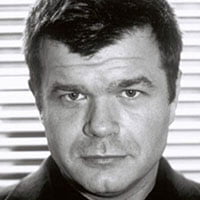Remembering Tim Sparke
Tim Sparke, the founder of doc sales agent Mercury Media International, passed away last week after a five-year battle with cancer. Adam Benzine reflects on a unique personality in the documentary industry.

Tim Sparke
When I joined C21 as factual editor in 2008, Tim was one of the first friends I made in the industry, at a time when I knew little about the world of international documentaries (hey, I’m still working most of it out).
At the IDFA festival in Amsterdam that year, he organised a dinner, mostly for directors whose films he was representing, such as Sons of Perdition helmer Tyler Measom. He brought people together to talk shop and discuss life.
In that respect, I feel a debt to Tim for the hand he extended to me in my early days at C21 – and I know my successor as factual editor, Clive Whittingham, feels the same.
Working in the TV industry, it can be tempting to reduce matters down to companies and budgets, and programme titles and deals. But this is, above all, an industry of people. The ties that bind go deeper than just the deals you sign with folk or the stories you write about them. Tim really understood this.
A few years after that IDFA dinner, he and his wife adopted two children, and I remember, as we met up at Hot Docs in Toronto, him showing me pictures of the young kids and buzzing with the excited, radiant glow that new fathers have. We didn’t talk much about docs that day.
But that was an exception. Docs were where Tim’s heart was at. In addition to setting up Mercury, which repped a catalogue of more than 120 documentaries, Sparke also founded Joining The Docs, a VoD service that aimed to be a sort of Netflix for documentaries; and the ambitious but short-lived Documentary Distributors’ Association, which sought to be a champion for industry issues.
“Tim has always been a fighter for the documentary genre,” his friend Peter Hamilton recalled last week. He was right.
The non-fiction industry can be a strange one. Documentarians often pride themselves on speaking truth to power, unafraid to challenge corrupt governments, corporations and institutions. But when it comes to speaking power to commissioning editors, a careerist instinct can take hold, whereby the bitching and complaining that happens behind closed doors gets replaced by brown-nosing and kowtowing.
Tim, however, was unencumbered by such notions. He had no problem cornering BBC commissioning execs at parties and giving them an earful about what they were doing wrong, and how they should be doing more to programme bold documentaries, and not just factual entertainment. Channel 4, he would often add, should be doing more too.
Such comments came from a place of genuine love and concern for the state of British broadcasting. Even last year, deep into his battle with cancer, he took to Facebook to champion the Beeb against those who would see it diminished.
“The BBC licence fee provides incredible value for money,” he wrote. “It is a crucial national asset and loved by the people of Britain.” I know his passion earned the respect, and friendship, of Beeb execs such as Carol Sennett and Nick Fraser.
Tim was the real deal. He really cared about documentaries and he genuinely believed in the good they could do. While he set up Mercury Media and Joining the Docs as commercial ventures, one doesn’t leave a career as an executive at Disney and go into the non-fiction business to make money.
Moreover, “You don’t go into the documentary distribution business without some kind of passion for life,” as he stated in a BBC interview in 2013.
The last time he emailed me, Tim said he had mixed feelings about being away from the circuit of film festivals and conferences owing to his illness. On the one hand, he rather abhorred the circuit, because the “industry exploits poor producers.” He felt more festivals should pay to screen films (most don’t).
Nevertheless, “saying all of that, I am enormously grateful for the life it has given me,” he wrote.
I reflect on those words today, and remember him at that IDFA dinner years ago, introducing filmmakers to each other, shaking hands, pouring wine, talking shop, picking up the cheque.
Smiling.
Sparke is survived by his wife, Vidya, and his two children. His funeral will take place at Holy Trinity Church in Dorchester, Dorset, on September 9, with donations in his memory being taken by the Weldmar Hospicecare Trust.
Adam Benzine is the Canadian bureau chief for C21 Media.












.jpg)




























